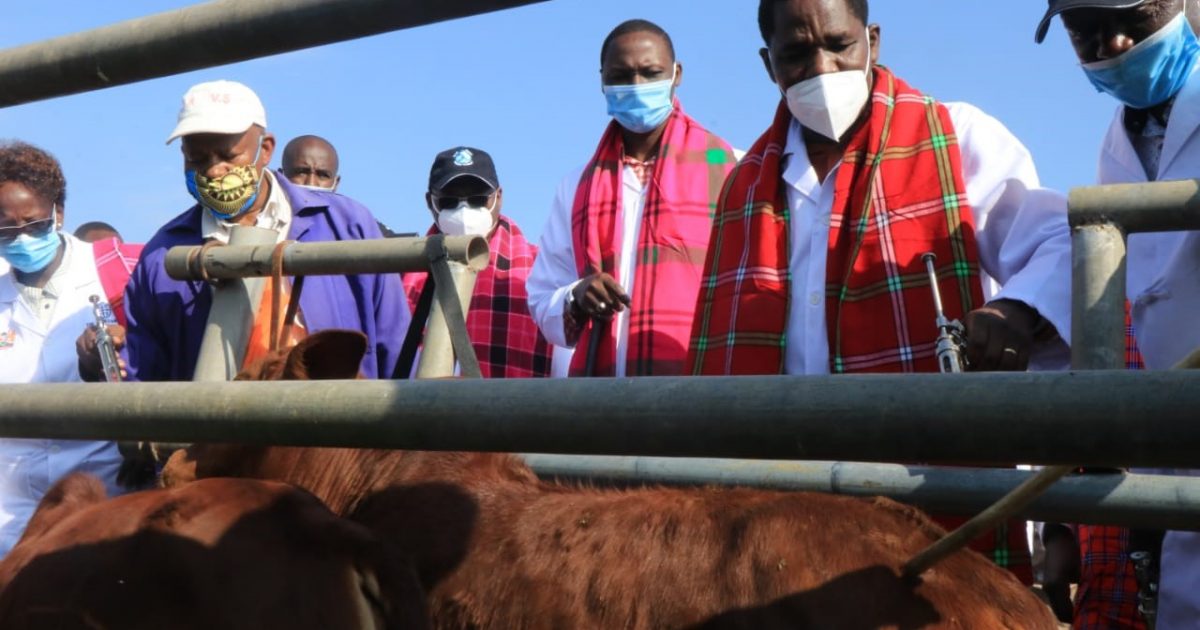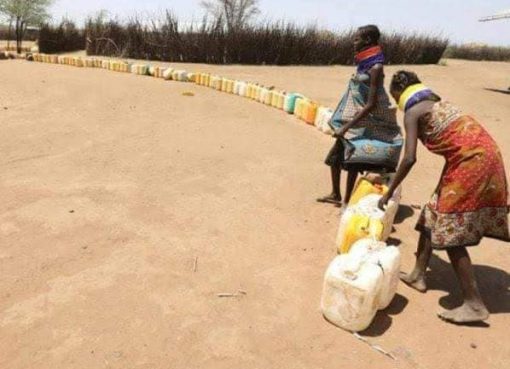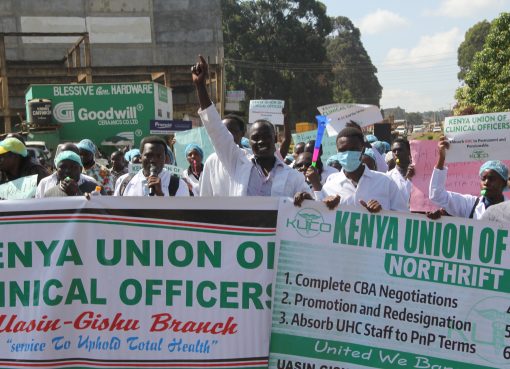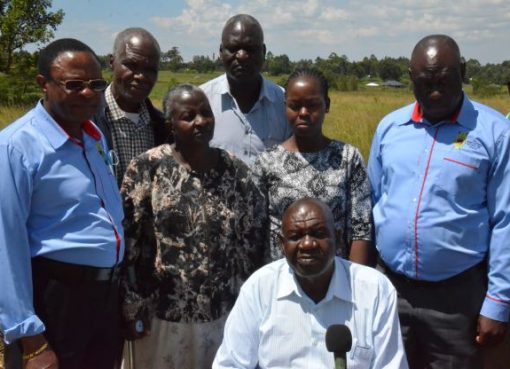Livestock farmers have been urged to avail their cattle, sheep and goats for the free national vaccination exercise against trans-boundary diseases.
Agriculture, Livestock and Fisheries Cabinet Secretary Peter Munya while launching the national Livestock Vaccination exercise at Oloosuyian Kajiado County Friday, said livestock production in Kenya is always under the threat of occurrence of animal diseases and the vaccination drive aims at preventing the spread to enhance livestock production and health.
Munya noted that trans-boundary disease like Rift Valley Fever (RVF), Foot and Mouth Disease (FMD), Blue tongue disease, Peste des Petite Ruminants (PPR), Lumpy Skin disease (LSD)and Brucellosis continue to threaten livestock production, resulting in economic and livelihood losses.
He said the diseases spread easily from one country to another, thus the control and management of the outbreaks require regular treatment and monitoring as well as cooperation between countries.
“The government is committed towards eradicating livestock diseases through regular vaccination and since the diseases do not respect international borders, regional cooperation among neighbouring countries is crucial to prevent spread from one country to another,” said Munya.
The CS added that the mass treatment, deworming and vaccination exercise that is being conducted countrywide targets over 18 million cattle, 26 million goats ,18 million sheep and 2.2 million camels which are expected to be vaccinated to protect them from the ravaging Foot and Mouth, Rift Valley Fever and the Blue tongue diseases.
Munya noted that livestock keeping is the backbone of the economy and the potential must be fully tapped so as to enable farmers secure foreign markets for their animal products.
“At least 90% of the population within Arid and Semi-Arid areas depend on livestock products including meat, milk and hides therefore there is a need to develop strategies to protect the animals either by controlling the spread of the disease or even completely eradicating them for the benefit of our people and the economy. ’Munya said.

According to the CS, the spread of the disease poses a greater danger of complete eradication of livestock due to failure of financial commitments by County governments.
He said some counties have totally refused to undertake the vaccination of livestock as a critical component of development in their areas putting those who have undertaken the initiative at risk of cross-border disease transmission.
“It is upon the County Assemblies to ensure that they set aside a fair budget to the vaccination exercise since the livestock function has been fully devolved. If one county decides to vaccinate their animals and the neighboring county fails, then exercise will be in futility as there will be an outbreak of trans-boundary diseases.” Munya said.
Furthermore, the CS pledged to focus all his energies to ensure that all livestock in the country are tagged for easy identification as well as trace- ability.
“We have put in place plans to ensure that by the beginning of the next financial year we are going to digitally tag all our livestock to easily monitor their movement and prevent cattle rustling. Once tagged we will be able to track the movement of that particular animal that has been stolen.” he added.
Kajiado County CEC for Agriculture, Livestock and fisheries Jackline Koin said disease surveillance requires a combined effort among all counties so as to curb the spread of cross-border livestock diseases.
She attributed uncontrolled livestock movement and low vaccination coverage to the rapid spread of trans-boundary disease which if not managed can be fatal.
Koin revealed that the two-months drive targets 200,000 head of cattle in all the five sub-counties which will be vaccinated against Foot and Mouth Disease, Peste des petits ruminants (PPR) and Rift Valley Fever.
A further 400,000 sheep and goats will be vaccinated against Blue Tongue disease.
Livestock farmers from the Kajiado welcomed the free mass vaccination drive adding that many farmers own hundreds of livestock and cannot afford vaccines due to their high cost.
Richard Serengei, a livestock farmer from Oloosuyian said cattle were the lifeline of the Maasai community and vaccination would keep the animals free from diseases.
“We are happy that our animals will be vaccinated against foot and mouth disease that has been troubling us often. Our community depend on livestock keeping as an economic activity thus the livestock must be healthy and free from diseases so that we can empower ourselves financially,” said Serengei
Serengei added that livestock farmers were ready to comply with Ministry of Health guidelines aimed at curbing the spread of COVID-19 and called for the re-opening of livestock markets.
Korash ole Kikai reiterated Serengei’s remarks adding that the livestock were growing in number but there was no market for it.
He said the closure of the livestock markets had impacted negatively on them as they depend on the livestock trade to earn a living.
James ole Maona, a livestock keeper from Ildamat, said Foot and Mouth disease which has been very common in the area would now be contained.
Maona said a vaccine for the disease costs 150 Kshs and many farmers cannot afford and this had made it hard to curb the spread. He welcomed the free mass vaccination drive and called for all farmers to avail their animals for treatment.
“It is a major reprieve for me because I have three cows that have been affected by foot and mouth but today they have been vaccinated for free. The rest of my herd have also been vaccinated therefore the Sh5000 that I had set aside for vaccination will now enable me to attend to other matters,” Maona said.
By Rop Janet





